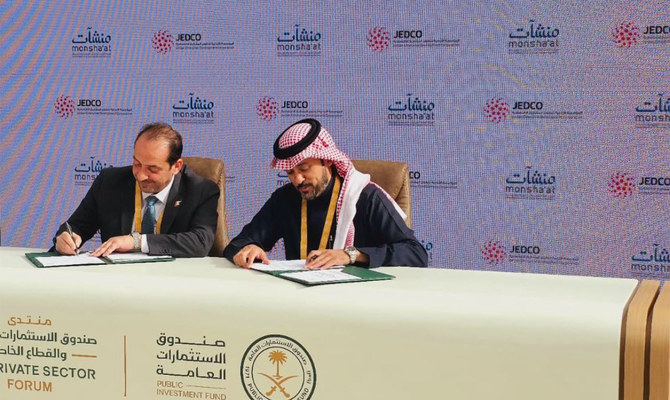
The MoU comes from the goodwill of the leadership of both countries, which aims to strengthen the solid ties that bind them together: Prince Abdul Aziz bin Salman, Saudi minister of energy
RIYADH: Saudi Arabia and Jordan have signed an electricity cooperation agreement, the Saudi Press Agency reported.
The Memorandum of Understanding (MoU) was signed by the Saudi Minister of Energy Prince Abdul Aziz bin Salman and the Jordanian Minister of Energy and Mineral Resources Hala Zawati.
The prince said: “The MoU comes from the goodwill of the leadership of both countries, which aims to strengthen the solid ties that bind them together, consolidate the long-standing and distinguished relations between them, push them toward broader horizons, and to ensure the exploitation of available potential and opportunities to strengthen the existing cooperation between them in all fields, including electrical energy.”
He said that both countries’ leaders were keen to consolidate the strategic partnership in a way that strengthened relations between the two countries and fulfilled the aspirations of their citizens.
For this goal, he added, there was a desire from the two parties to establish an electrical interconnection project between their two networks, accompanied by the establishment of an optical fiber line between the two communications networks.
The prince said that the electrical interconnection project between the Kingdom and Iraq was moving rapidly toward completion through a direct connection between the two countries and the Gulf link.
He stressed that the electrical interconnection projects between the Kingdom and Jordan, and other projects like it, would enhance the regional market for electricity trade and support the participation of the two countries in it.
He also said that Saudi Arabia had ambitious plans to become one of the main countries in the field of producing and exporting electricity using renewable energy, once the necessary infrastructure was completed, and that these plans would boost the Kingdom’s position in terms of electricity exports through its Arab interconnection projects.
The Kingdom had moved toward electrical interconnection with neighboring countries to achieve many benefits, including enhancing the reliability of the electric grid, providing the necessary support and reserves for interconnected networks at times of peak consumption or electrical emergencies, and investing in the opportunity to exchange surplus generation capacity, according to the prince.
Other benefits were making use of the diversity and disparity occurring in daily and seasonal electricity demand, and promoting the entry of renewable energy projects into the electrical networks of interconnected countries, which would contribute to achieving the optimal energy mix for electricity production, and enhancing environmental conservation efforts.
Zawati said that the MoU aimed to make Jordan a regional center for the exchange of energy, especially since the agreement would link the Gulf Cooperation Council and eastern Arab states with the rest of the Arab countries in North Africa. It would strengthen the regional market for electricity trade, Zawati added.
The MoU also aims to enhance the reliability and stability of the two networks, and the possibility of importing and exporting electric energy between the two countries and other Arab countries.
The MoU entrusts the Saudi Electricity Company in Saudi Arabia and the National Electricity Company in Jordan with the task of preparing and implementing the necessary electrical interconnection project agreements and implementing them within the framework of the MoU.












